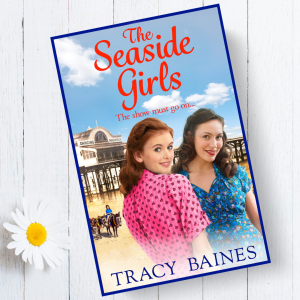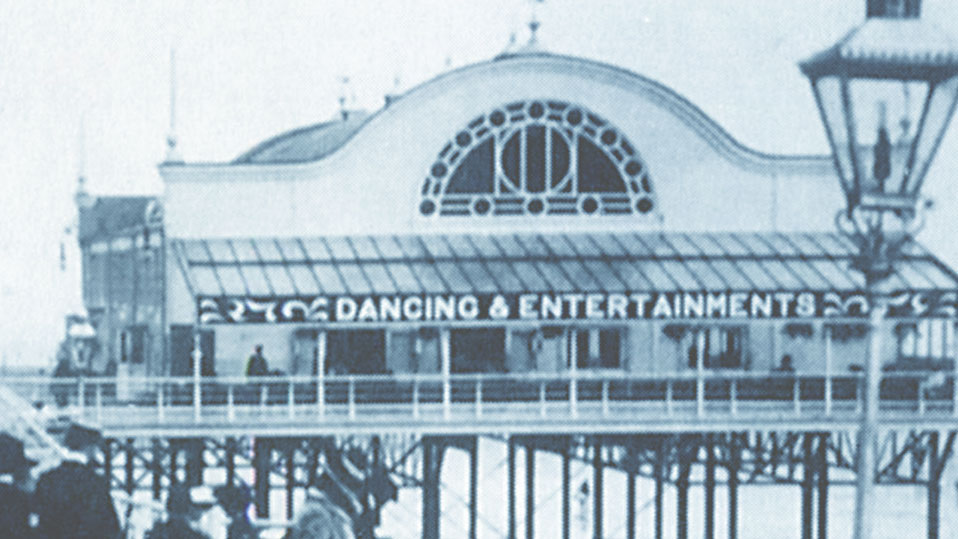The Seaside Girls and the summer of 1939
I imagine most people associate piers with fun, laughter and summer variety shows. Just the thought of a stroll down the pier evokes such happy memories, and these are the feelings I wanted to capture when I was writing The Seaside Girls.
The main character, Jessie Delaney’s life is changed forever when she goes to see a variety show on Cromer pier. It’s the summer of 1939, and war seems inevitable. Taking a last grasp at happiness, she leaves home to appear in a seaside theatre in Cleethorpes. I was going to use the pier for her first solo job, but in the summer of 1939 it was a dance venue; Don Twidale and his Augmented orchestra were resident that year.
However, a little further along sat the Empire, a small theatre that faced down to the sea, its name written in huge white letters upon the roof that could be seen for miles. It was the perfect place for a young girl to make her mark.
I know the area well, and although I have lived in Dorset for almost 30 years, I could mentally return to the streets I played in as a child. It was fun to incorporate many of the real locations, and I had the opportunity for my characters to stroll along the pier that stretched so far out to sea before it was breached in 1940.
I wrote the book, then took a long overdue trip to Cromer to make sure the small details were correct. I knew what it was like to walk along Cromer Pier, but what would Jessie see as she
left? Small changes were made to give the seal of authenticity.
So where did the inspiration for The Seaside Girls come from?
Like many people, my first experience of piers was going on holiday. Visiting Great Yarmouth in the 1960s we saw three different shows in a week. Walking into the theatre in the sunshine and walking out under the stars, the strings of coloured lights shining along the promenade like jewels was simply magical. Many of the stars of the day headlined the shows and we saw Morecambe and Wise, Arthur Askey, Val Doonican and Donald Peers among many others. I only remember happiness, fun, and laughter – such is the connection with piers.
When I was nine, my parents took over the running of the Pier Hotel – a pub that sat directly opposite the entrance to Cleethorpes pier. Could it get any better? One of the rooms at the pub was closed. Dad opened it and started putting on live entertainment. Many of the entertainers appearing on the pier came in for a drink after the show. Many became friends. It all seemed so colourful and glamorous.
Dad became friends with Cameron Watt, the Tourism officer for Cleethorpes, and suddenly, my sisters and I had a golden ticket thrust into our little hands. We saw every summer show for years. There was also the hugely successful folk festival, and the East Coast Dance Festival, which brought thousands of people into the town, and the weeks in between were filled with plays, pantos and variety shows galore.
At sixteen, I got a job backstage. That first summer, Tony Christie topped the bill, supported by Cannon and Ball. I was in my element and in-between scene changes, I read biographies of old timers and movie stars – Max Wall, George Formby, Groucho Marx, Jack Benny – anything that Grimsby Library had on its shelves.
Little did I know then how important it would all be to me now.


